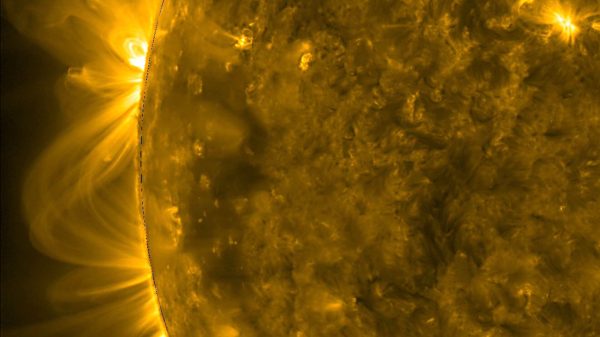New US sanctions have actually deprived Russia of the main part of the foreign exchange market. Now transactions in the dollar and euro, which accounted for more than 50% of total trading volume in May, will go to the much less liquid and transparent over-the-counter market. In Moscow exchange offices, the dollar was already selling for 200 rubles on the evening of June 12. The Central Bank assures that nothing will happen to the currency in citizens’ accounts and promises to form official dollar and euro exchange rates based on quotes from banks and digital platforms. But experts talk about the risks of problems with settlements in other foreign currencies, as well as for a number of financial instruments.
Main part of the Russian currency market will now have to go into the shadows
The main part of the Russian foreign exchange market will now have to go into the shadows
The US authorities have imposed tough sanctions against the last major financial structure of the Russian Federation, which has not yet been subject to restrictions — the Moscow Exchange group. In addition to the trading platform itself, the SDN-List includes the National Clearing Center (NCC), which performs settlements on transactions in different markets and functions as a central counterparty, as well as the National Settlement Depository (NSD, subject to EU sanctions since June 3, 2022). At the same time, the US Treasury imposed sanctions against Tochka Bank and expanded them to foreign divisions of Sberbank, VTB and PSB.
Sanctions against the exchange did not come as a surprise: such a possibility has been talked about on the market since 2022 , including less than a month ago (see “Kommersant” dated May 13). Therefore, both the site and the Central Bank of the Russian Federation clearly have action scenarios for this case.
The exchange's first step was to ban trading in the dollar and euro, as well as in instruments in which these currencies are used in settlements, from June 13.
In May, the share of exchange transactions in the dollar and euro accounted for 51, 57% of exchange trades.
When setting the official exchange rate of the dollar and the euro, the Central Bank will now be guided by the instruction «On the procedure for establishing… official exchange rates of foreign currencies against the ruble», developed back in the fall of 2022. In particular, the rates will be determined based on transactions «submitted to the Bank of Russia as part of the reporting of credit institutions» or received «as part of access to digital platforms for over-the-counter trading.» That is, from the over-the-counter market, which will continue to function. As the manager of a large management company explains, such a mechanism is possible: banks that have correspondent accounts in dollars or euros determine the rate from 10 to 11 am on interbank trading, and then transactions are carried out «around the received fixing.»
The Central Bank immediately assured that companies and citizens will be able to “continue to buy and sell US dollars and euros through Russian banks”, the funds “in the accounts and deposits of citizens and companies remain safe”, the previous issuance regime applies to them.
< p class="incut__note_text">51.57 percent
the share of the dollar and euro in the total trading volume on the foreign exchange market of the Moscow Exchange in May.
Exchange trading in shares, bonds and other ruble-denominated instruments, including derivatives, are not formally affected by the sanctions. According to Kommersant’s interlocutor at the brokerage company, “Russian investors will continue trading on the Moscow Exchange, as before, but non-residents will not come to them until the sanctions are lifted.” Kommersant’s source in another brokerage company admits “a local shock that the market will survive,” and in the future even “an increase in ruble liquidity” on the stock market.
Currency and interest rate market strategist at SberCIB Investment Research Yuri Popov agrees that in the short term “there may be high volatility and wide spreads in exchangers,” but in the medium term he even allows for a strengthening of the ruble, since “capital outflow may decrease.”
In a number of banks, currency selling rates have already increased sharply, for the dollar — up to 200 rubles.
However, in large banks, spreads have widened , but remained within acceptable limits — 85 rubles. (purchase) and 95 rub. (sale).
At the same time, experts note the risks of difficulties with the use of other financial instruments. In particular, according to NSP AB lawyer Gleb Boyko, “trading in unblocked foreign securities, the accounting of which was carried out without the participation of Euroclear and Clearstream,” will be “difficult.” Partner at BKHK law firm Roman Khaminsky adds that the question remains open: “which of the unfriendly jurisdictions will join the US sanctions against the Moscow Exchange and NCC and how the friendly ones will behave.”
In addition, according to Mr. Khaminsky, “currency held in a brokerage or bank account may also be at risk.” In the worst case, it allows for “blocking of funds.”
In general, the sanctions are aimed at complicating the international payments of Russian banks.
According to Delcredere senior lawyer Evgeniy Konovalov, the United States continues the trend of actively applying secondary sanctions against Russian companies and companies from friendly jurisdictions (primarily China and the UAE) in order to stop circumventing sanctions: “The pressure on foreign financial institutions processing payments related to Russia.”
Russian banks traditionally claim that sanctions will not affect their work. Thus, Sberbank noted that foreign branches “are an integral part of the groups” and have already been subject to sanction restrictions. “The United States has expanded sanctions to include in SDN divisions and subsidiaries of Russian sanctioned financial organizations in foreign jurisdictions (Hong Kong, China, Kyrgyzstan). These divisions were previously subject to blocking US sanctions, but now they will be reflected in the SDN personally,” confirms Gleb Boyko.
The PSB believes that there are “new sanctions restrictions” on the work of foreign branches will not be reflected.» Tochka says that clients “retain the opportunity to make cross-border payments in Russian rubles.”




















































Свежие комментарии